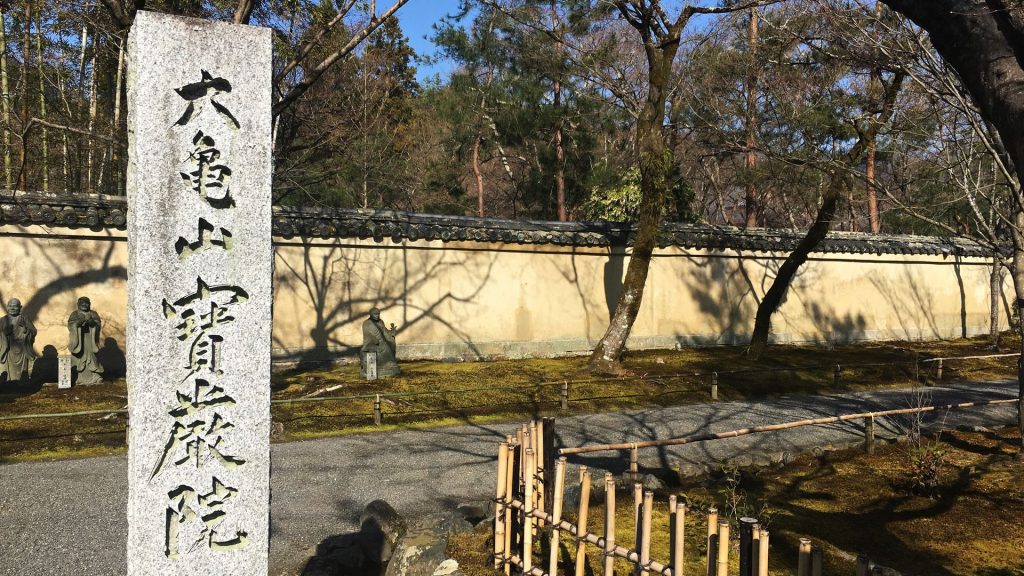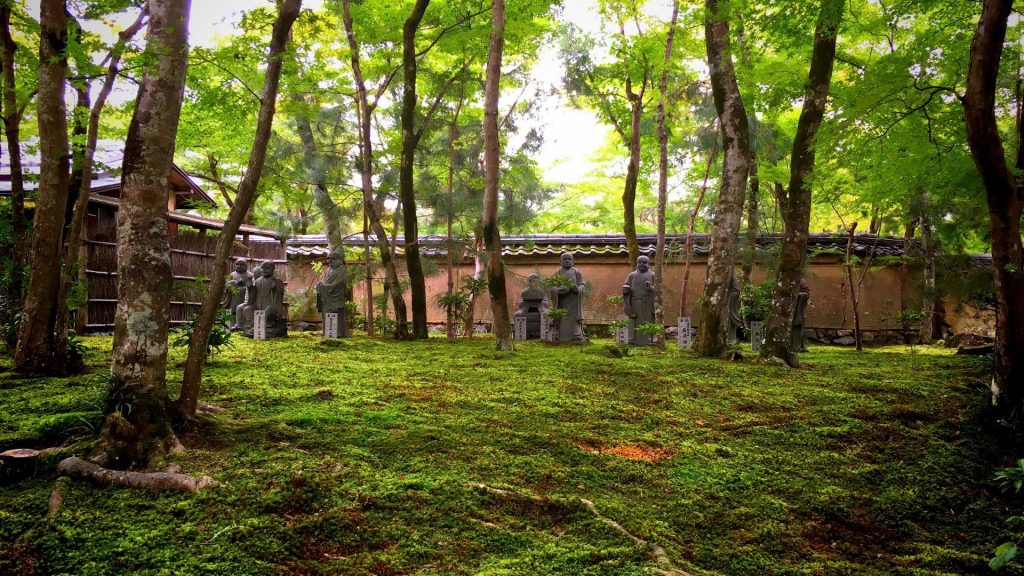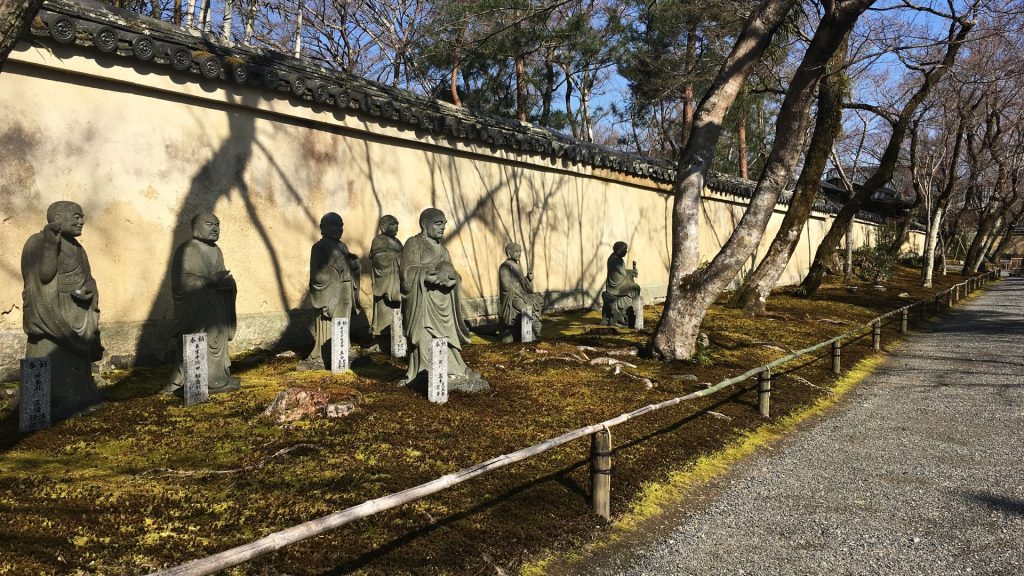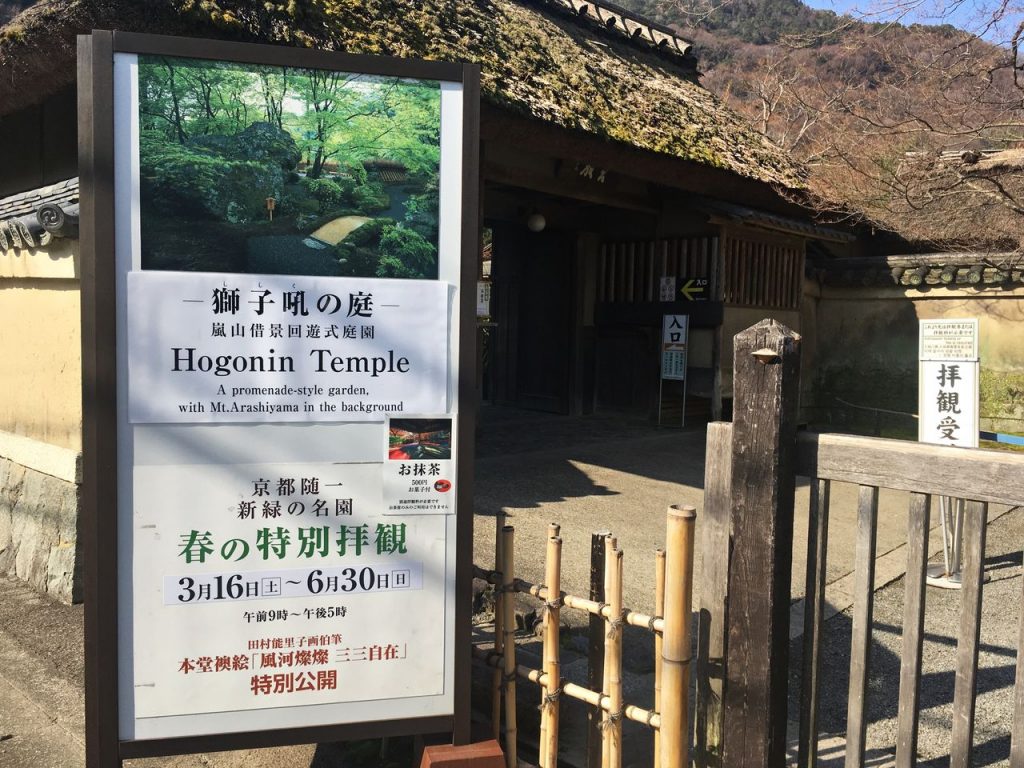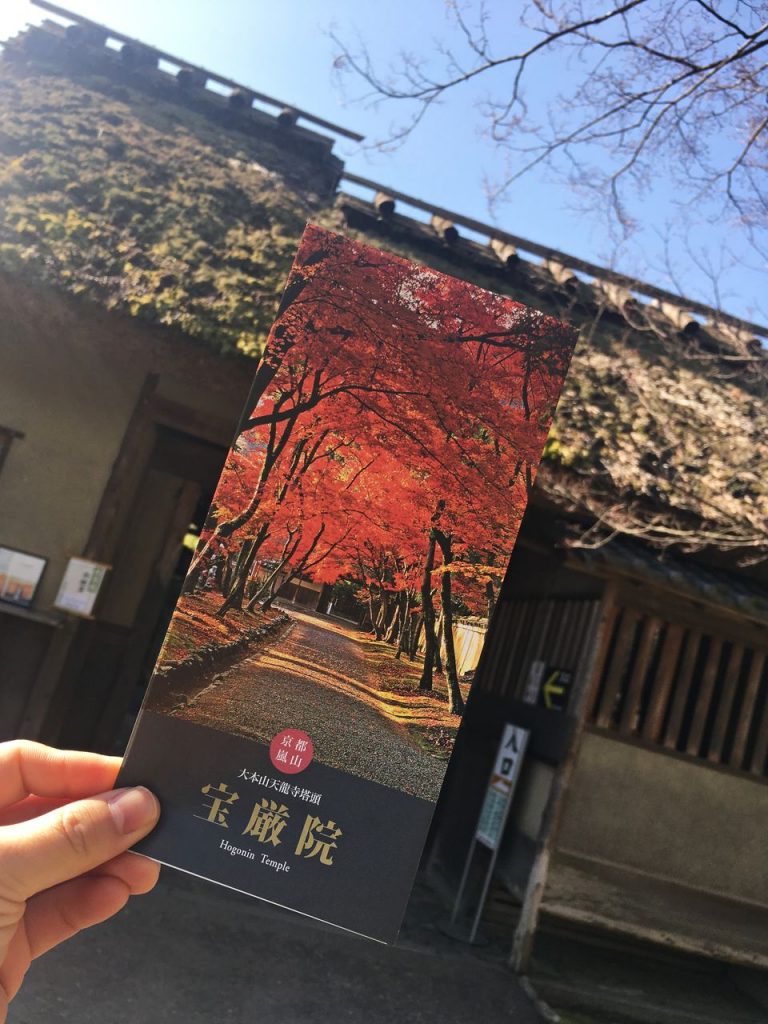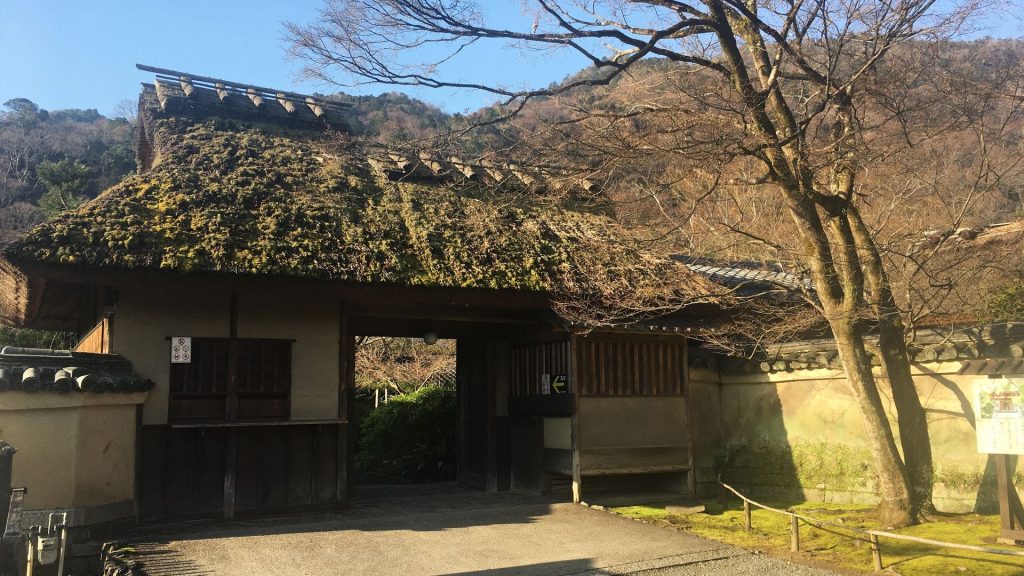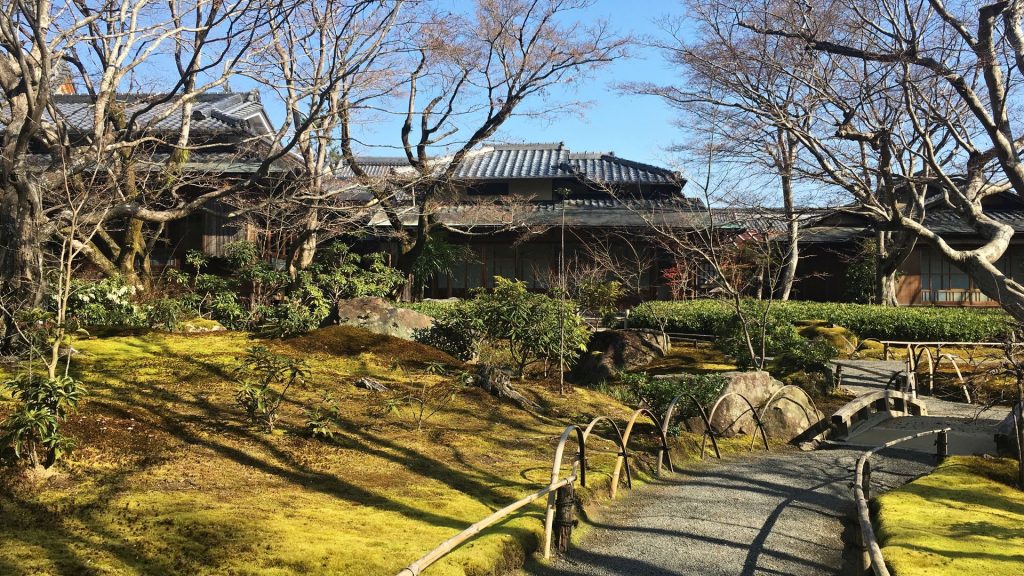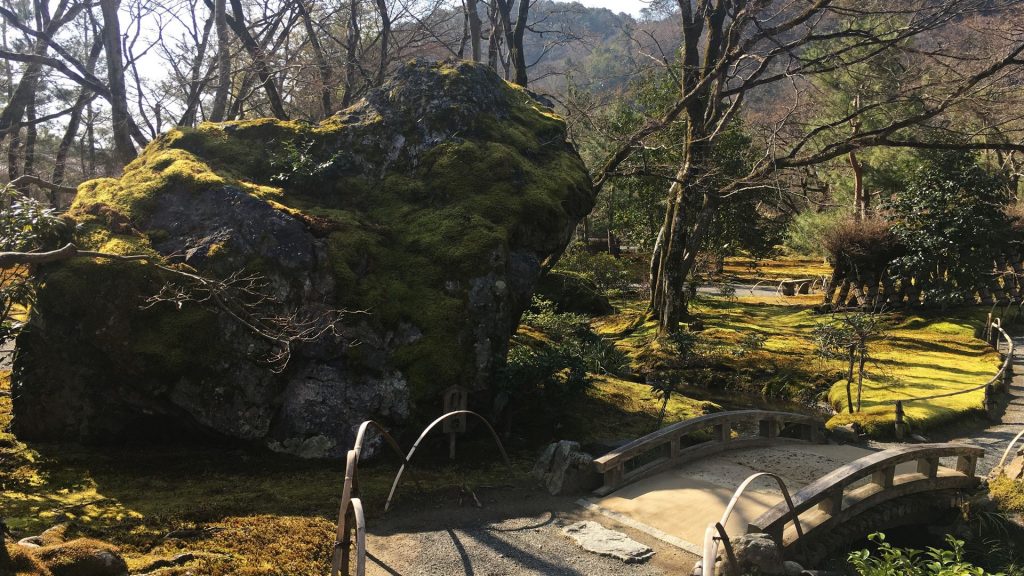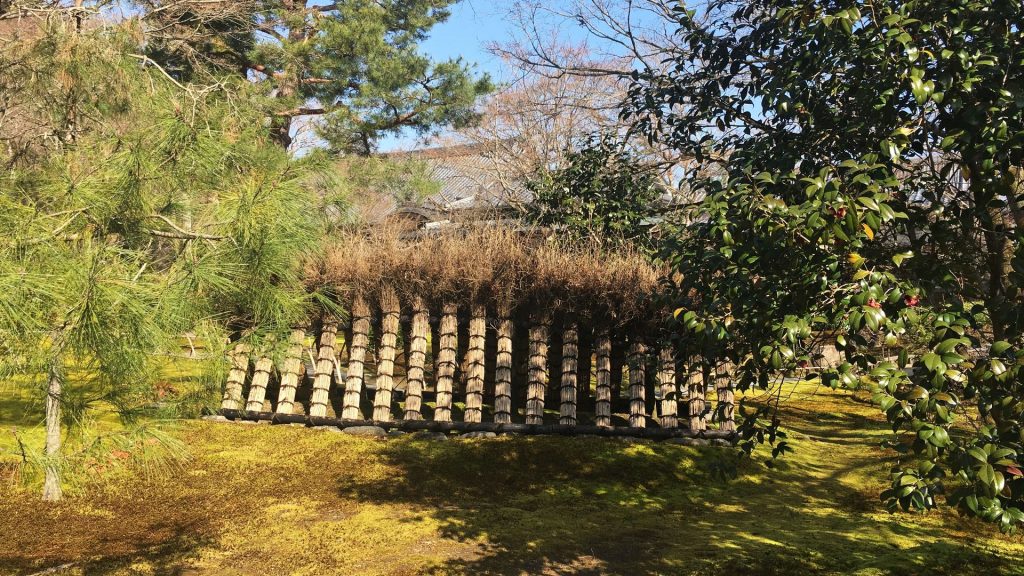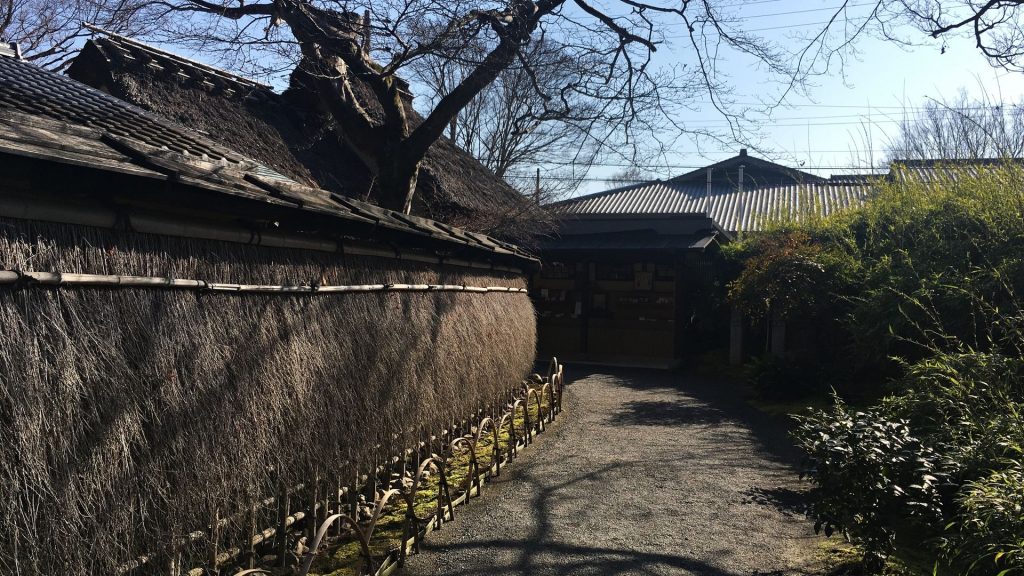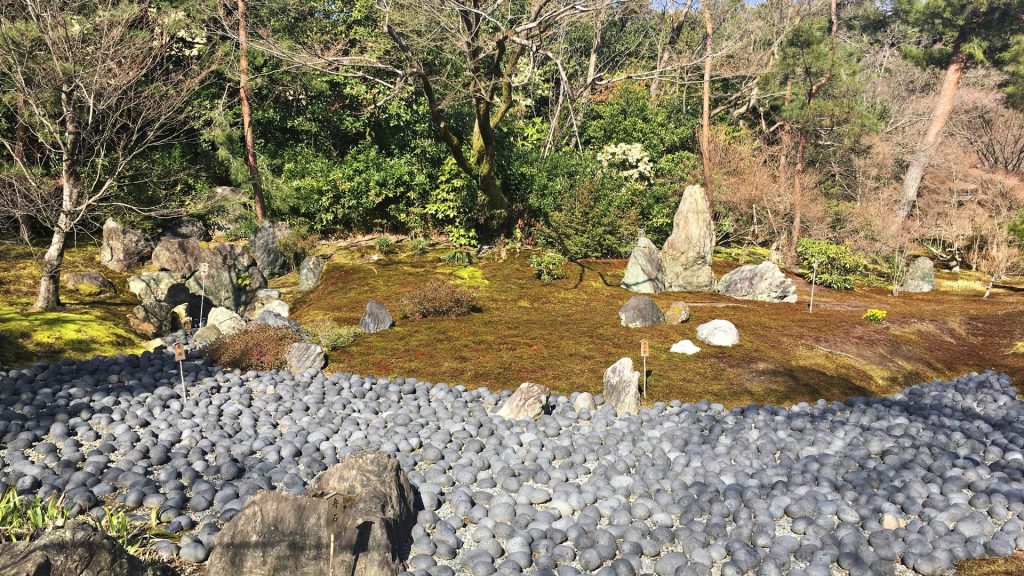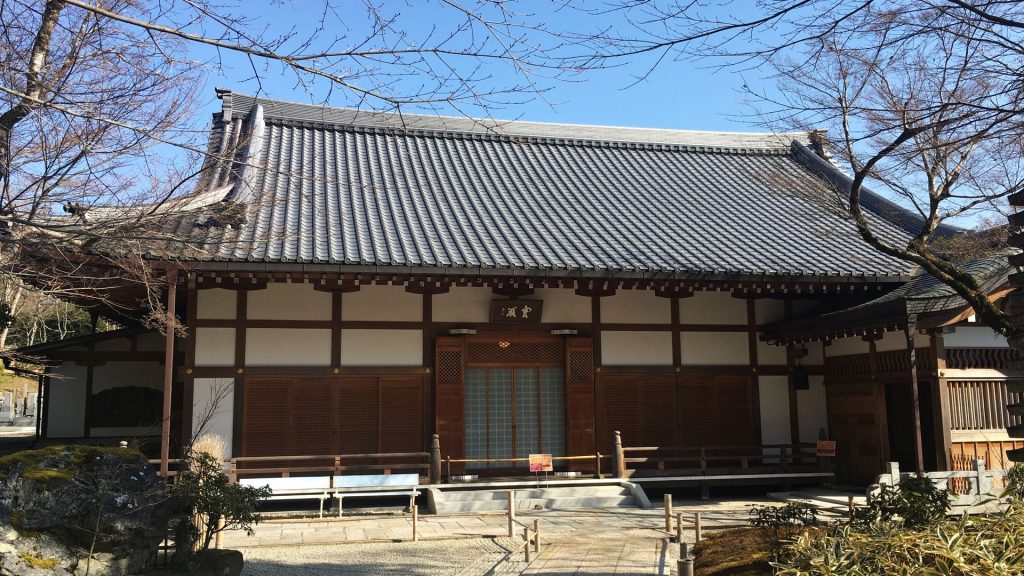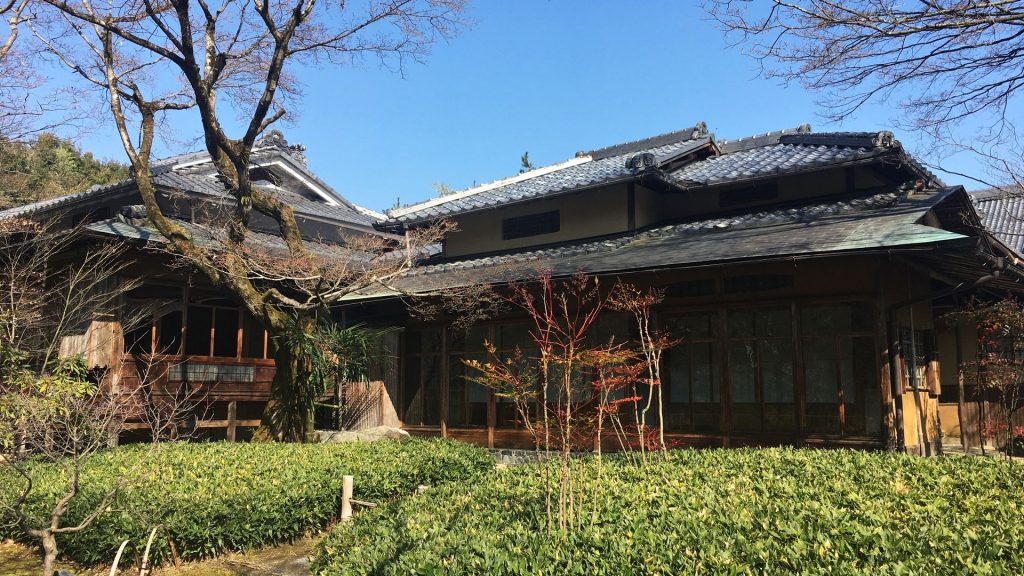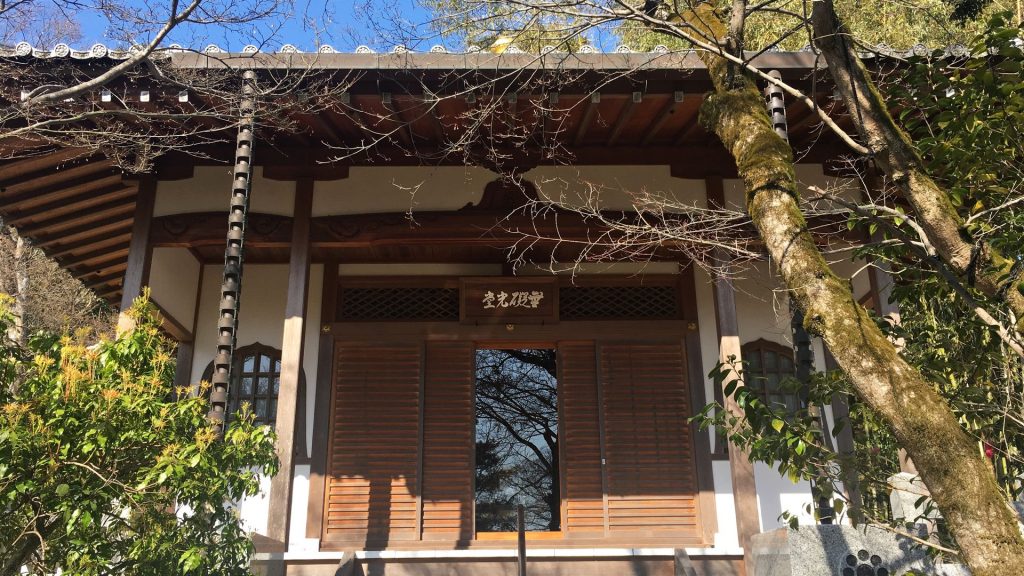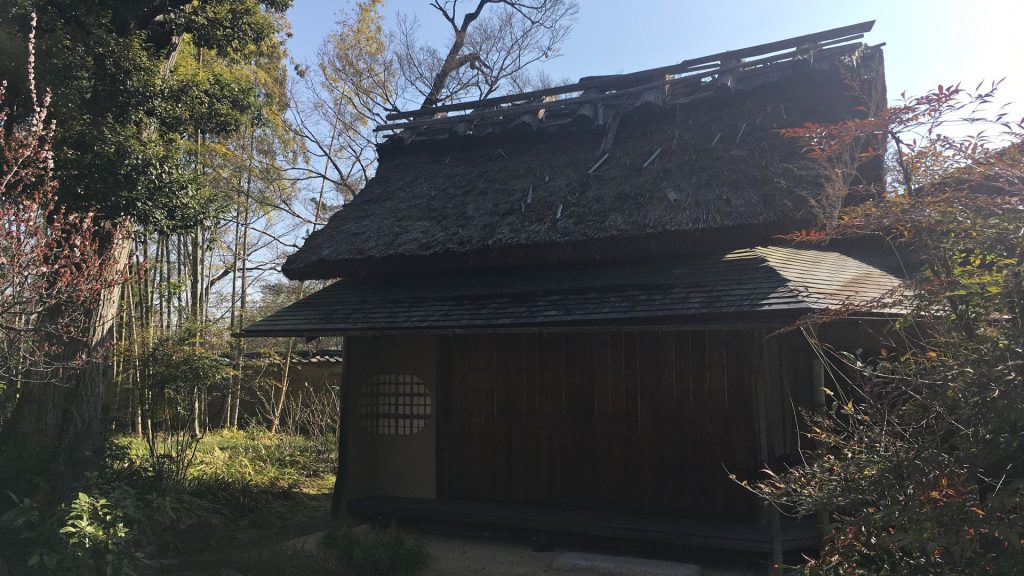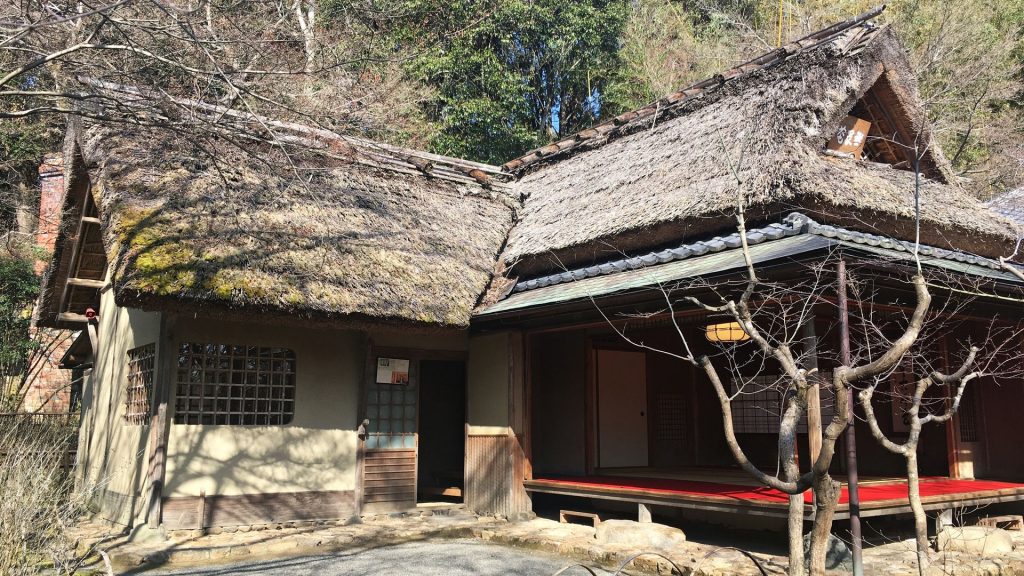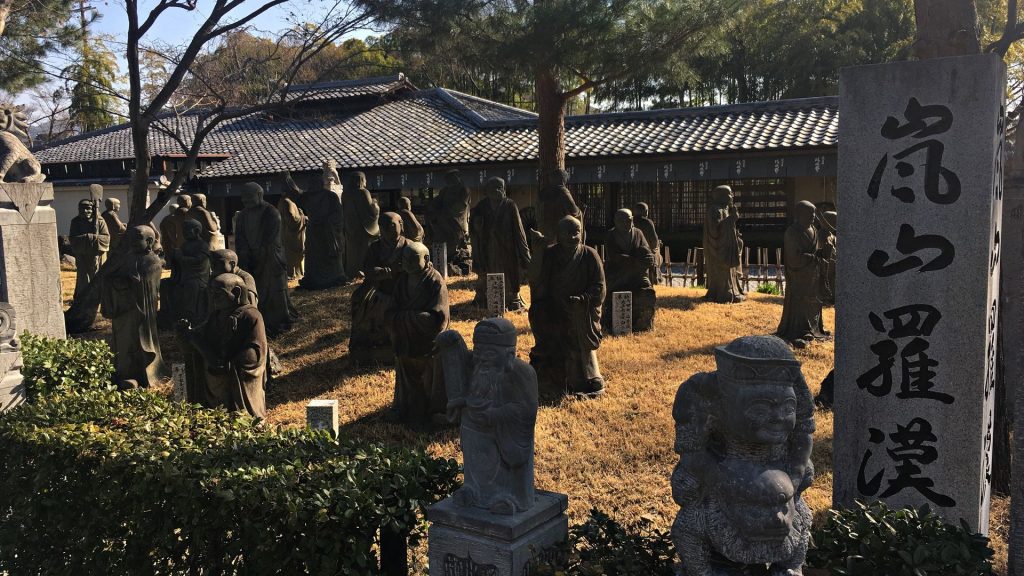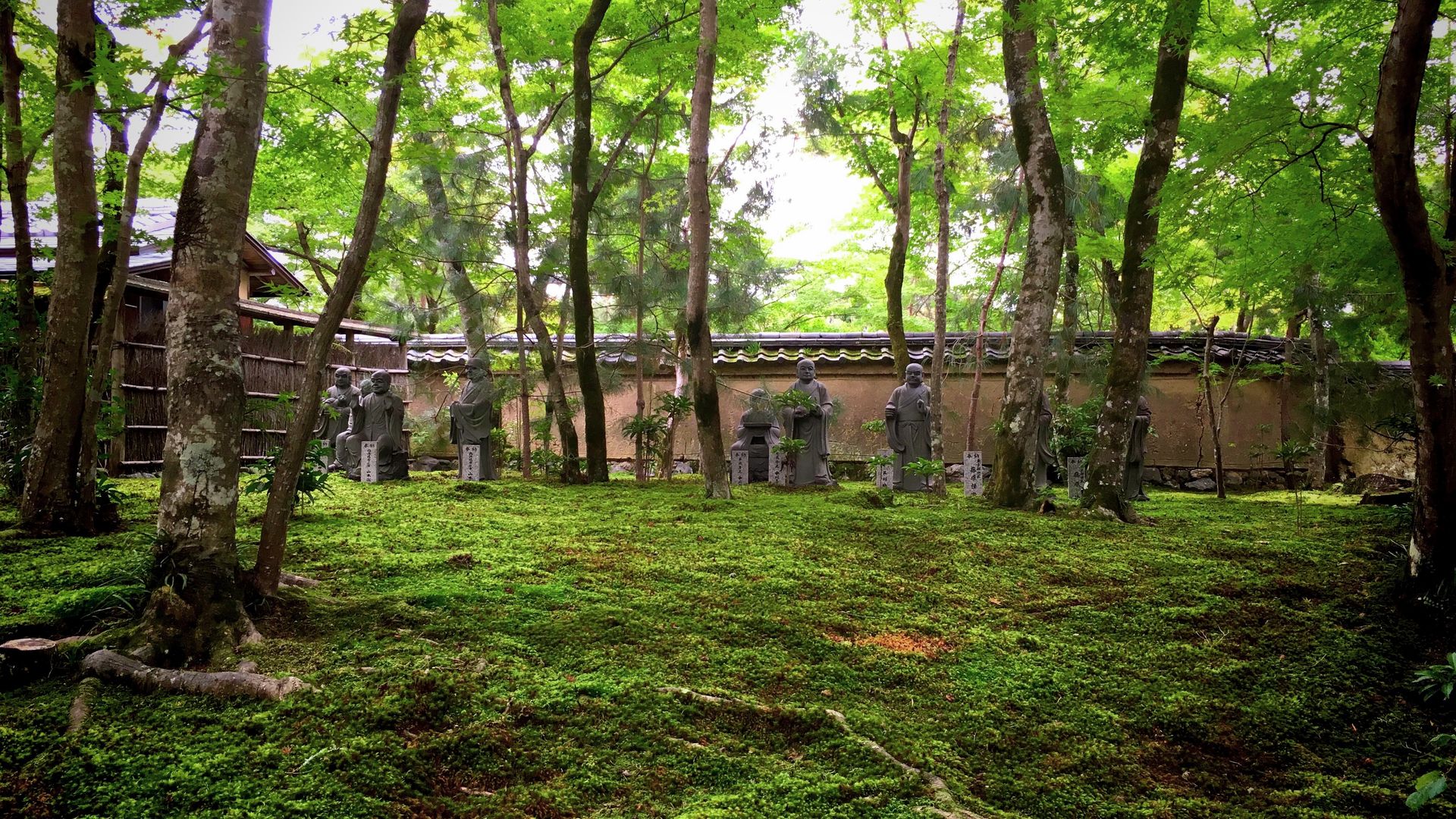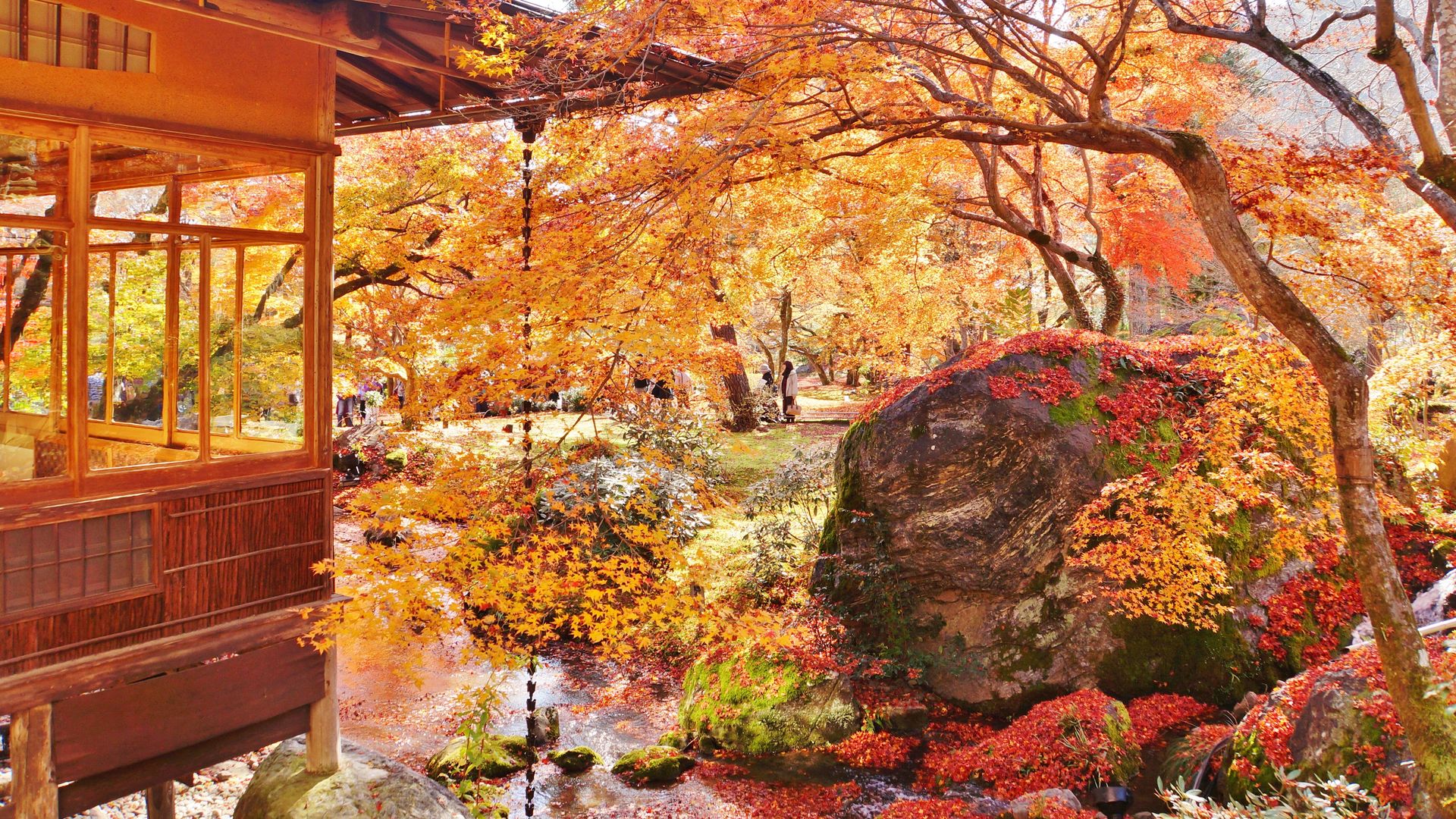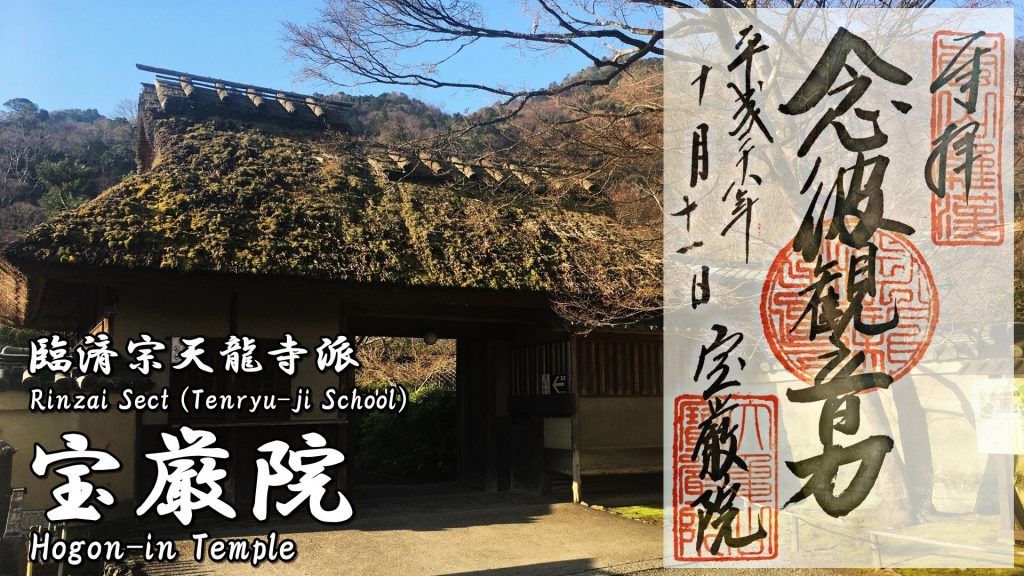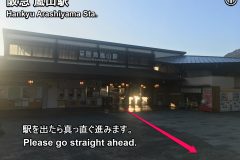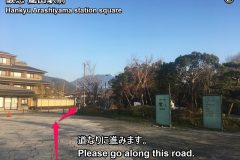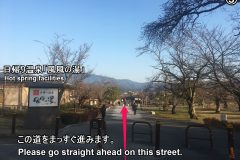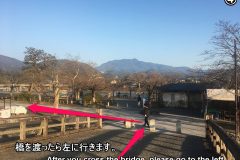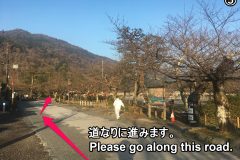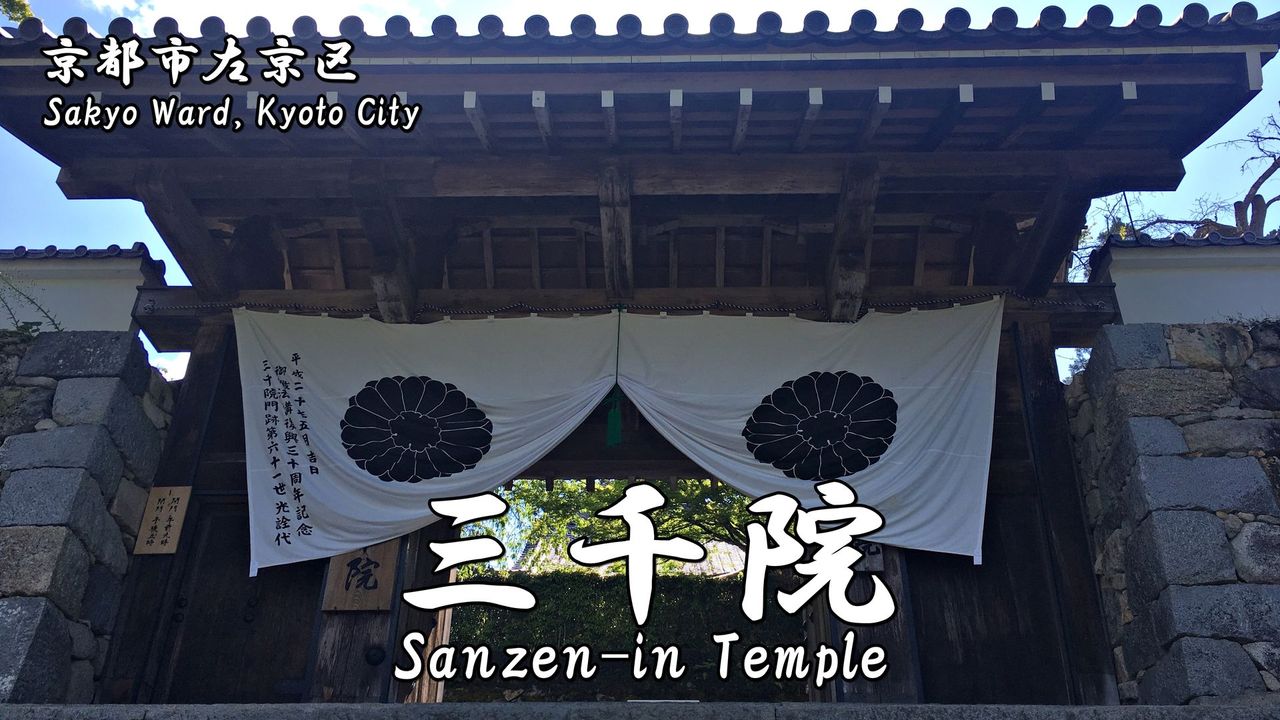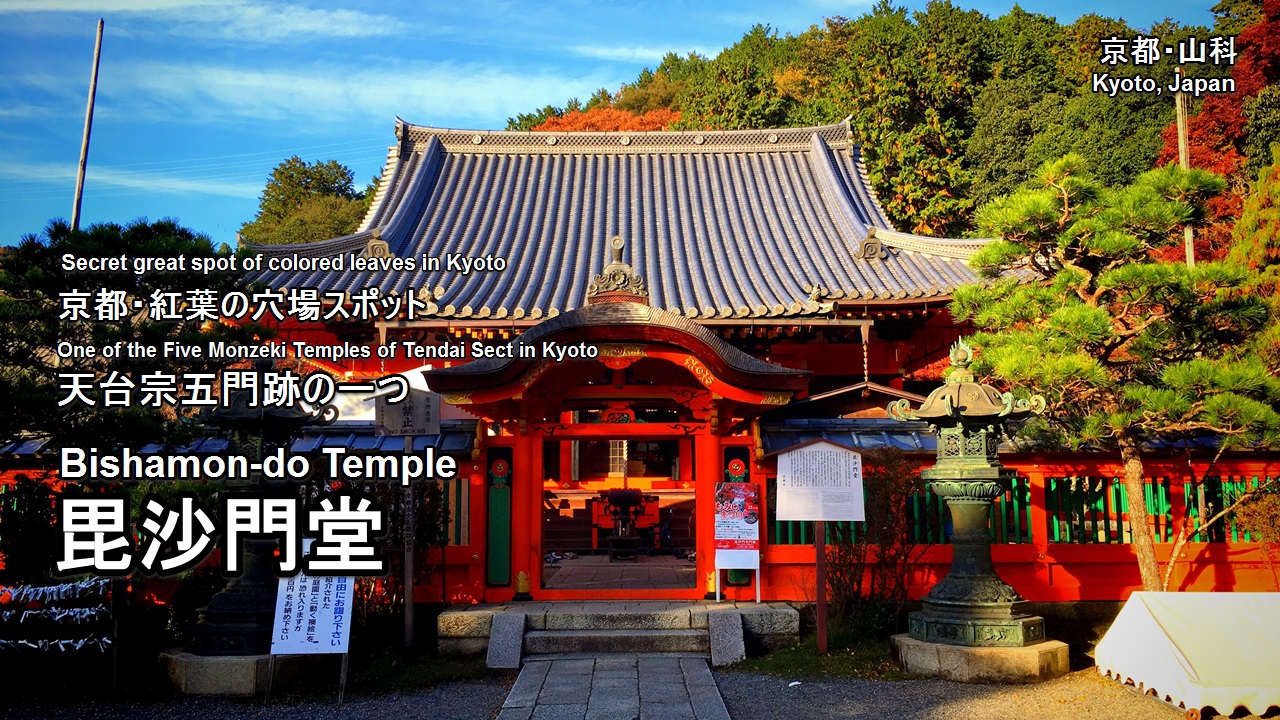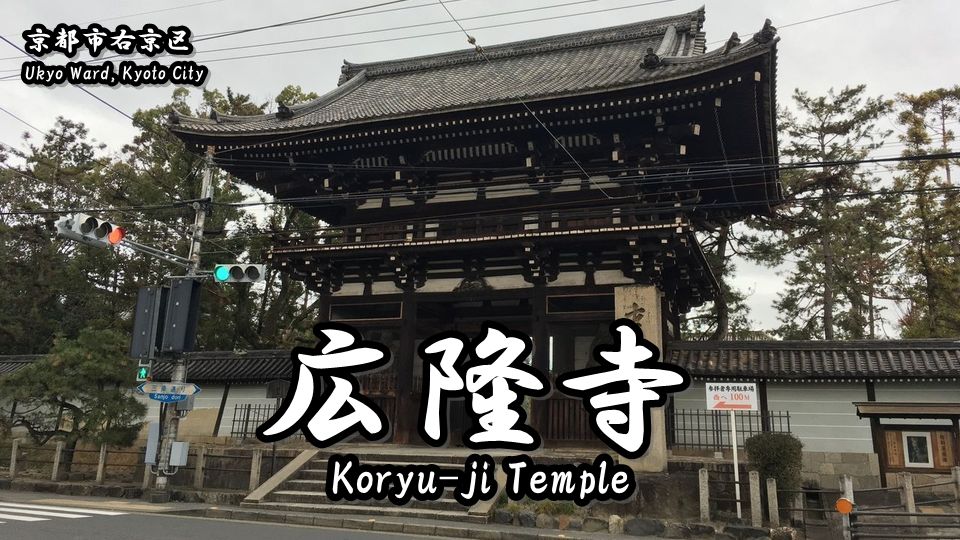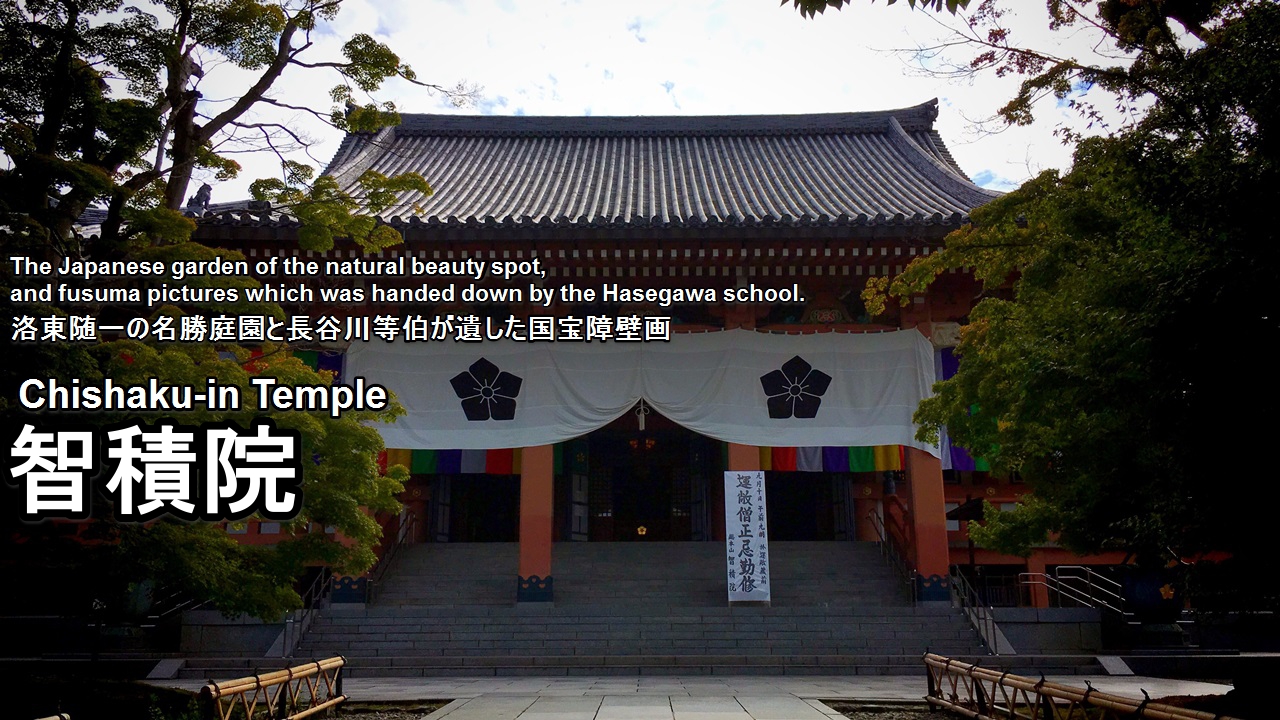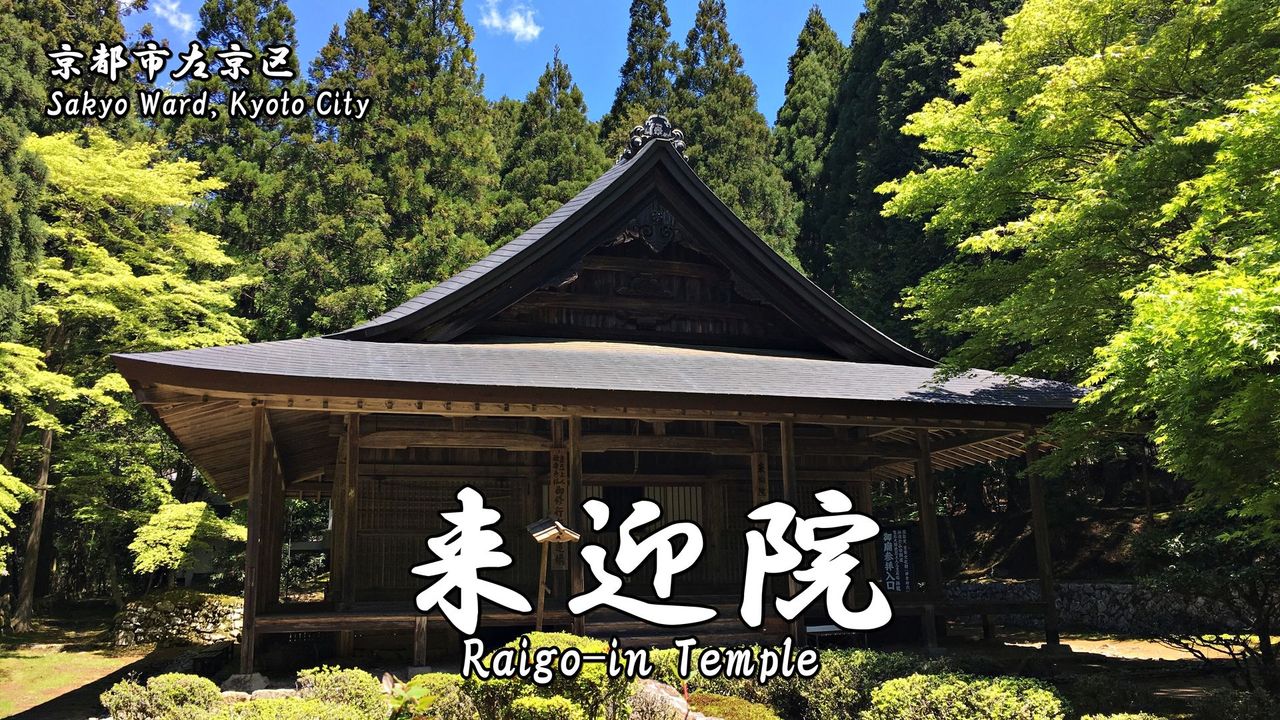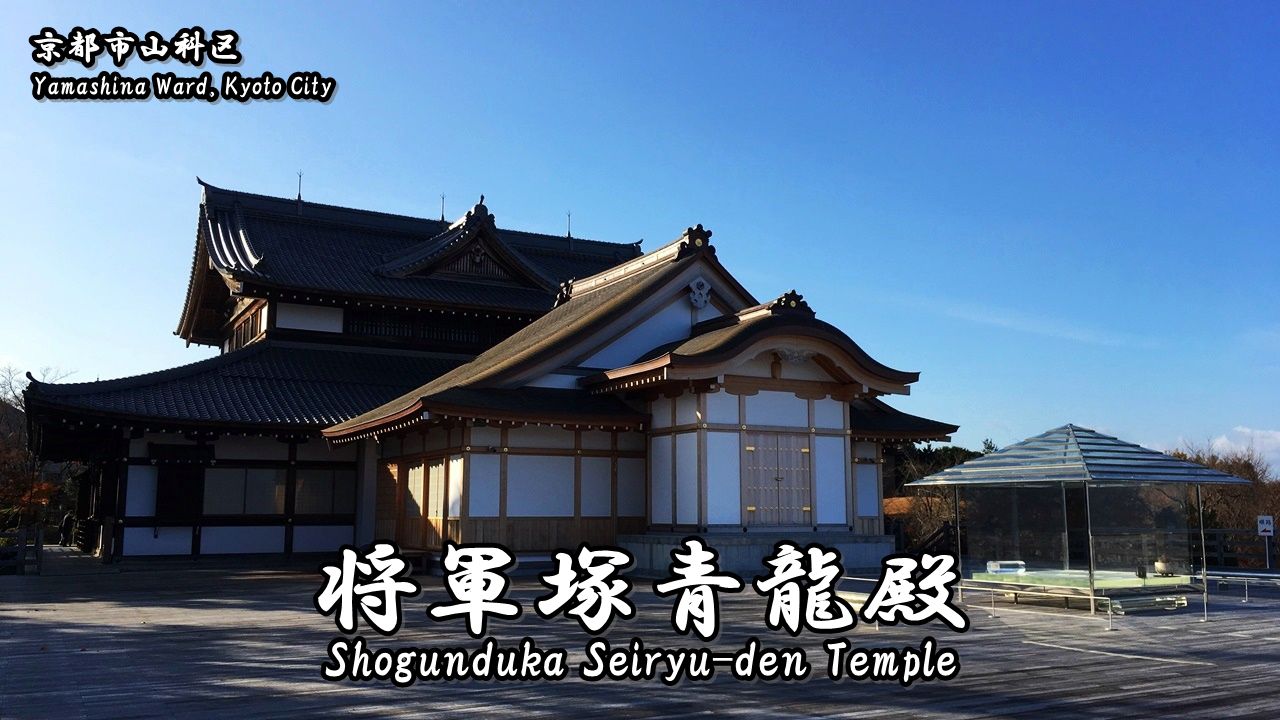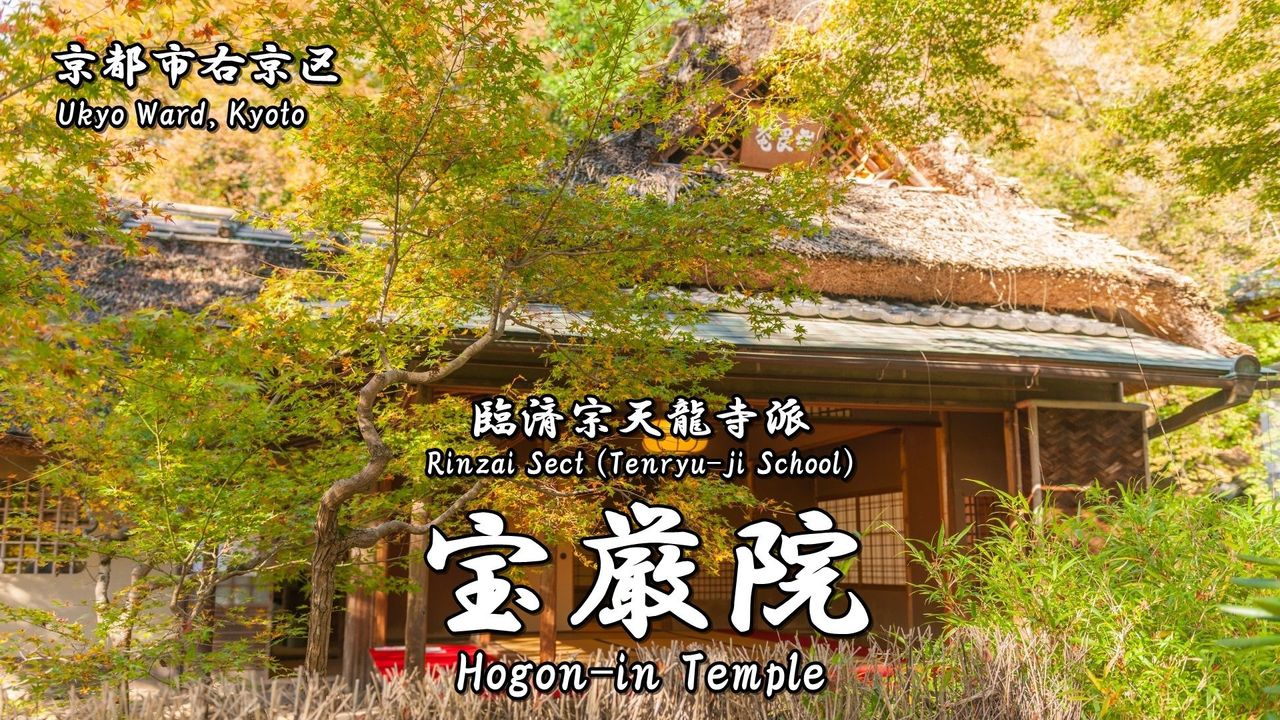
Hogon-in Temple (宝厳院) is a Buddhist temple belonging to the Tenryu-ji school of the Rinzai Sect located in Arashiyama, Ukyo Ward, Kyoto City.
This temple is only open to the public on specific days in spring and autumn.
It is one of the sub-temples of Tenryu-ji (天龍寺) which is registered as a World Heritage as a part of the “Cultural Assets of Ancient City Kyoto.”
From old days, this place is also known as a beauty spot for fresh green leaves and moss in the spring and for autumn leaves in the fall.
History of Hogon-in
Let’s study the history of this temple with me.
I think that we can enjoy sightseeing of this temple more by learning the history of it. XD
It was constructed in 1461 of the Muromachi period using funds donated by Yoriyuki HOSOKAWA (細川頼之) who was the kanrei (shogun’s deputy).
Its principal image is Juichimen Kannon Bosatsu (十一面観音菩薩 : Kannon Buddhisattva with eleven faces).
It was destroyed by fire during the Onin War (1467-1477), and was reconstructed using funds donated by Hideyoshi TOYOTOMI (豊臣秀吉).
Information for visitors
It is only open to the public on specific days in spring and autumn.
■Information of the Special admission (Japanese text only)
Below is the information on the Special admission in spring of 2019.
■Information
Address:36, Sagatenryuji Susukinobabacho, Kyoto Shi Ukyo Ku, Kyoto Fu, 616-8385, Japan
Phone:+81-75-861-0091
Foundation:1461
Founder:Yoriyuki HOSOKAWA (細川頼之)
Sect:Rinzai Sect Tenryu-ji School (臨済宗天龍寺派)
Principal image:Juichimen Kannon Bosatsu (十一面観音菩薩)
■Open
9:00 ~ 17:00
■Admission fee
| Adults | Primary and secondary student | |
| Garden | 500 yen | 300 yen |
| + Hon-do hall | + 500 yen | |
| Discount ticket (Hogon-ji + Kogen-ji) |
900 yen | |
■Other Informations
・Photography and video recording are prohibited inside the building of this temple.
・The worship method of a Shinto shrine and a Buddhist temple, please refer to the following article.
Next, Let’s go to see the highlights of this temple with me!
Highlights of Hogon-in
- 山門:San-mon Gate
- 獅子吼の庭*:Shishiku no Niwa*
- 本堂*:Hon-do Hall*
- 書院*:Sho-in Hall*
- 無礙光堂*:Mugeko-do Hall*
- 茶室「青嶂軒」*:Seisho-ken (Tea room)*
- 茶室「無畏庵」*:Mui-an (Tea room)*
- 嵐山羅漢:Arashiyama Rakans
This mark ‘*‘ is a pay area.
山門:San-mon Gate
獅子吼の庭*:Shishiku no Niwa*
A pond stroll style garden known as ‘Shishiku no Niwa’ (lit. Lion’s Roar Garden) that incorporates the surrounding scenery into its design.
本堂*:Hon-do Hall*
It was built in 2008 of the Heisei period.
Juichimen Kannon Bosatsu of the principal image is enshrined in this building.
書院*:Sho-in Hall*
It was rebuilt in 1919 of the Taisho period.
It is a building built in the Sukiya-zukuri style (which incorporates a number of tea ceremony house features).
無礙光堂*:Mugeko-do Hall*
茶室「青嶂軒」*:Seisho-ken (Tea room)*
茶室「無畏庵」*:Mui-an (Tea room)*
嵐山羅漢:Arashiyama Rakans
Rakan (Arakan : arhat in Sanskrit) is a saint in Buddhism who is eligible to receive respect and charity.
Green leaves of Hogon-in
Autumn leaves of Hogon-in
Video of Hogon-in
Photos of Hogon-in
Goshuin (red ink stamps) of Hogon-in
Hogon-in’s red ink stamp, ‘Nenpikannonriki (念彼観音力)’, one paragraph of the Sutra of Avalokitesvara.
How to get to Hogon-in
Nearest station is ‘Hankyu Arashiyama Sta.’ , ‘Randen Arashiyama Sta.‘ and ‘JR Saga Arashiyama Sta.’
(We can also go by bus from JR Kyoto Station.)
From Umeda(Osaka) Sta. to Arashiyama Sta. (by train)
Timetable and Route Search (train)
1.Get on the Hankyu Kyoto Line from Umeda Station to Katsura Station.
2.Change to the Hankyu Arashiyama Line at Katsura Station.
3.Get on the Hankyu Arashiyama Line from Katsura Station to Arashiyama Station.
From Namba Sta. to Arashiyama Sta. (by train)
Timetable and Route Search (train)
1.Get on the Osaka Metro Midosuji Line from Namba Station to Umeda Station.
2.Change to the Hankyu Kyoto Line at Umeda Station.
3.Get on the Hankyu Kyoto Line from Umeda Station to Katsura Station.
4.Change to the Hankyu Arashiyama Line at Katsura Station.
5.Get on the Hankyu Arashiyama Line from Katsura Station to Arashiyama Station.
From Kyoto Sta. to Arashiyama Sta. (by train)
Timetable and Route Search (train)
1.Get on the JR Sagano Line from Kyoto Station to Saga Arashiyama Station.
Get on a bus from Kyoto Station
Timetable and Route Search (bus)
①Please get on the Kyoto City Bus No.28 (bus stop C6) and get off at Arashiyama Tenryuji-mae (Tenryuji Temple / Randen Arashiyama Sta.)
Bus company:Kyoto City Bus
Routes/Destination:No. 28[Bound for Daikakuji Temple Via Arashiyama]
Boarding bus stop:Kyoto Sta. [C6]
Alighting bus stop:Arashiyama Tenryuji-mae (Tenryuji Temple / Randen Arashiyama Sta.)
Bus fare:230 yen
Time required:About 44 min
[Timetable]No. 28[Bound for Daikakuji Temple Via Arashiyama]
②Please get on the Kyoto Bus No.73 (bus stop C6) and get off at Arashiyama Tenryuji-mae (Tenryuji Temple / Randen Arashiyama Sta.)
Bus company:Kyoto Bus
Routes/Destination:No. 73[Bound for Kokedera & Suzumushidera]
Boarding bus stop:Kyoto Sta. [C6]
Alighting bus stop:Arashiyama Tenryuji-mae (Tenryuji Temple / Randen Arashiyama Sta.)
Bus fare:230 yen
Time required:About 40 min
[Timetable]No. 73[Bound for Kokedera & Suzumushidera]
From Arashiyama Sta. (on foot)
It’s about 15 minutes on foot from Hankyu Arashiyama Sta, 5 minutes from Randen Arashiyama Sta.
Take a taxi
From Kyoto Station:4000 yen ~ (about 30 minutes)
From Gion-Shijo Station:4000 yen ~ (about 30 minutes)
・Let’s show a taxi driver the following phrase.
・If you want to call a taxi, let’s show the following phrase.
[Phone number of taxi dispatch : Around the Kyoto Station]*Japanese text only.
Hotel search & reservation
How did you like it?
Have a nice trip! XD

